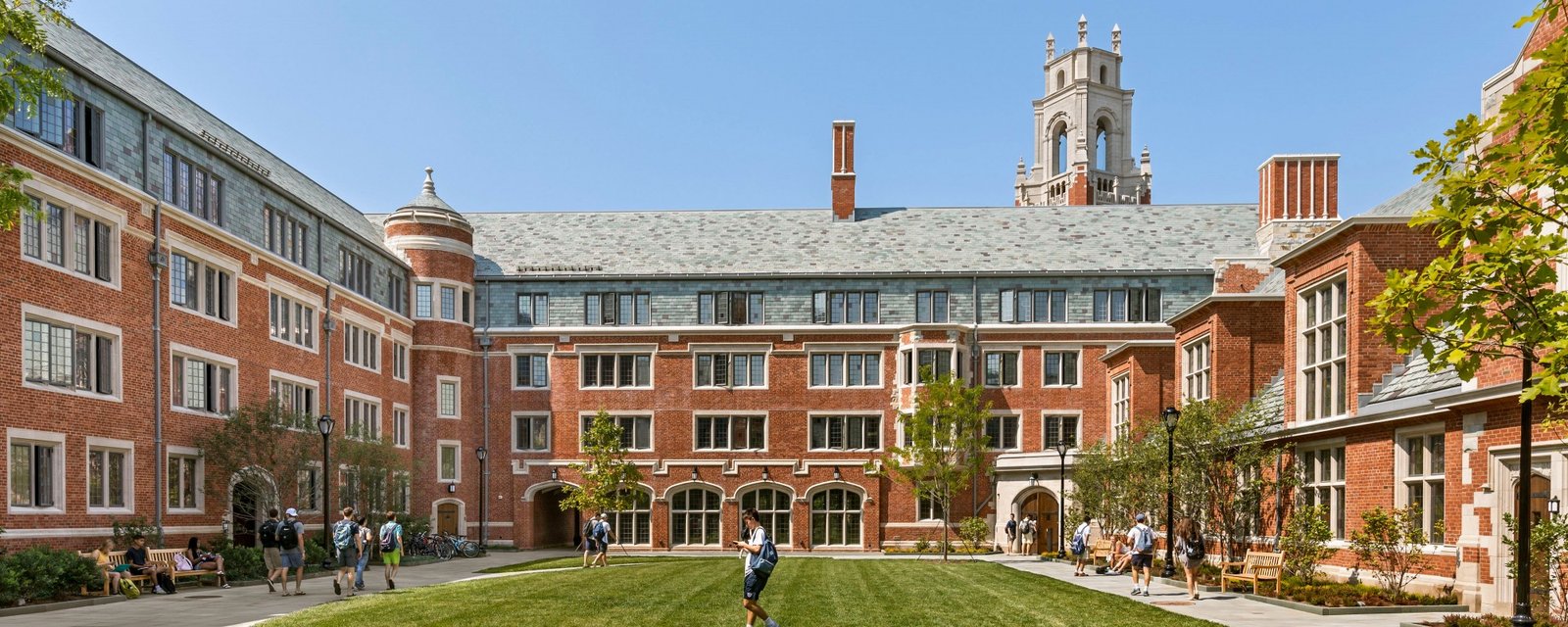Summary
Princeton University has a long history—it was established back in 1746, making it one of the oldest universities in the U.S. Originally named the College of New Jersey, it became Princeton University in 1896. The campus is in Princeton, New Jersey, about 50 miles southwest of New York City. Around 8,000 students are enrolled here, with undergrads making up nearly two-thirds of that number. International students account for roughly 12% of undergraduates and over 40% of graduate students. Undergraduates get guaranteed housing for all four years, and almost all of them live on campus. Princeton has six undergraduate residential colleges, which serve as tight-knit communities offering both academic and social programs. A good portion of grad students—about 70%—also live in university housing.
As an Ivy League school, Princeton includes an undergraduate college, a graduate school, the School of Architecture, the highly ranked School of Engineering and Applied Science, and the Woodrow Wilson School of Public and International Affairs. Undergrads can pick from more than 30 majors. Classes are taught in English, and the academic year follows a semester system. Research at Princeton spans four main areas: engineering and applied sciences, humanities, natural sciences, and social sciences. The university is also connected to two national labs—the U.S. Department of Energy’s Princeton Plasma Physics Laboratory and NOAA’s Geophysical Fluid Dynamics Laboratory, which focuses on climate research and modeling.
Rankings

Princeton University holds the #16 spot in the Best Global Universities ranking. These rankings are based on a set of widely recognized indicators of academic excellence.
Global Universities Rankings
- #16 in Best Global Universities (tie)
Subject Rankings
- #16 in Arts and Humanities
- #40 in Biology and Biochemistry
- #101 in Cell Biology
- #53 in Chemistry
- #455 in Clinical Medicine (tie)
- #50 in Computer Science (tie)
- #131 in Condensed Matter Physics
- #72 in Ecology
- #22 in Economics and Business
- #15 in Electrical and Electronic Engineering
- #228 in Energy and Fuels
- #128 in Engineering
- #27 in Environment/Ecology
- #34 in Geosciences
- #176 in Materials Science (tie)
- #2 in Mathematics
- #185 in Mechanical Engineering (tie)
- #29 in Meteorology and Atmospheric Sciences
- #69 in Molecular Biology and Genetics
- #317 in Nanoscience and Nanotechnology (tie)
- #106 in Neuroscience and Behavior (tie)
- #153 in Optics
- #235 in Physical Chemistry
- #10 in Physics
- #337 in Plant and Animal Science
- #52 in Psychiatry/Psychology (tie)
- #74 in Social Sciences and Public Health (tie)
- #5 in Space Science
2025-2026 Indicator Rankings
Thirteen different factors were used to determine Princeton’s overall global rank. Below is how it stacks up in each category:
Global Universities
- #16 in Best Global Universities (tie)
- Global score: 83.6
Key Indicators
- Global research reputation: #8
- Regional research reputation: #9
- Publications: #220
- Books: #51
- Conferences: #119
- Normalized citation impact: #24
- Total citations: #128
- Top 10% most cited publications: #124
- Percentage of top 10% most cited publications: #13
- International collaboration (relative to country): #158
- International collaboration: #777
- Top 1% most cited papers: #120
- Percentage of top 1% most cited papers: #64

